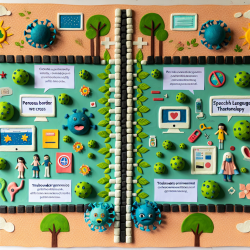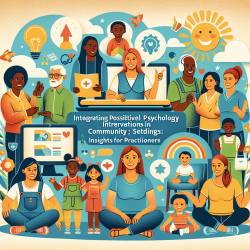Introduction
In the ever-evolving landscape of educational practices, understanding the intricate relationship between sleep and adolescent brain function is crucial. Recent research, particularly the study titled "Neurophysiological differences in the adolescent brain following a single night of restricted sleep – A 7T fMRI study," sheds light on the profound effects of sleep deprivation on the adolescent brain. This blog aims to explore the implications of this study for practitioners and encourage further research in this vital area.
The Study: A Closer Look
The study conducted by Robinson et al. (2018) utilized ultra-high field functional neuroimaging to examine the effects of a single night of restricted sleep (4 hours) versus a normal night's sleep (8 hours) on adolescents. The findings revealed significant disruptions in key brain regions, particularly those involved in the default mode and limbic regulatory centers. These disruptions were linked to decreased efficiency in the amygdala and altered connectivity patterns in fronto-limbic circuitry.
Implications for Practitioners
Understanding these findings can greatly enhance a practitioner's ability to support adolescent development. Here are some practical applications:
- Promote Healthy Sleep Habits: Educators and therapists should emphasize the importance of adequate sleep in adolescents. Encouraging regular sleep schedules and minimizing distractions before bedtime can help mitigate the negative effects of sleep deprivation.
- Integrate Sleep Education: Incorporating sleep education into the curriculum can raise awareness among students about the impact of sleep on cognitive and emotional health.
- Monitor Behavioral Changes: Practitioners should be vigilant in observing changes in behavior or academic performance that may be linked to sleep deprivation. Early intervention can prevent long-term consequences.
Encouraging Further Research
While this study provides valuable insights, it also highlights the need for further research. Practitioners are encouraged to explore the following areas:
- Longitudinal Studies: Investigating the long-term effects of sleep deprivation on adolescent brain development can provide deeper insights into its impact.
- Intervention Strategies: Developing and testing interventions aimed at improving sleep quality among adolescents could offer practical solutions to mitigate the effects of sleep deprivation.
- Cross-Cultural Comparisons: Examining sleep patterns and their effects across different cultures can enhance our understanding of the universal and culturally specific aspects of sleep and brain function.
Conclusion
The study on neurophysiological differences following sleep restriction in adolescents underscores the critical role of sleep in cognitive and emotional regulation. By applying these findings, practitioners can better support the developmental needs of adolescents and contribute to a healthier, more informed generation.
To read the original research paper, please follow this link: Neurophysiological differences in the adolescent brain following a single night of restricted sleep – A 7T fMRI study.










